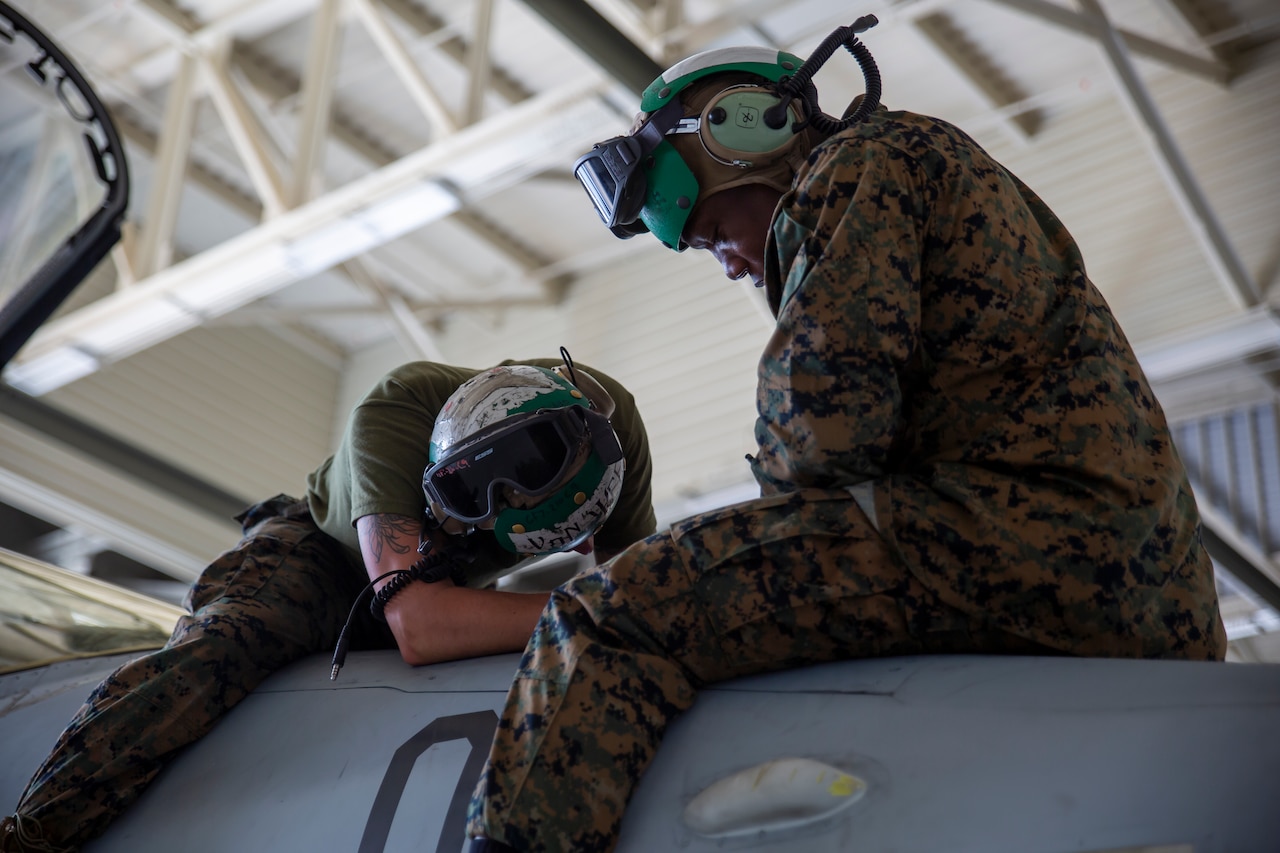
Years of budgetary indifference has severely impacted military aviation causing a degradation of readiness and — tragically — a loss of lives.
The National Commission on Military Aviation Safety released its recommendations yesterday saying aviators need more flight hours, maintenance personnel need better training and manning and supply chains need more and faster throughput.
The commission studied aviation safety from 2013 to 2018. During that time, there were 6,079 "incidents" resulting in 198 personnel killed, 157 aircraft destroyed and $9.41 billion in losses. This does not include personnel and aircraft lost in combat.
Congress chartered the commission and retired Army Gen. Dick Cody chaired it along with Richard Healing, a renowned safety expert, as vice chairman. Over 18 months, the commission visited 80 different sites with more than 200 different units.
Cody and Healing didn't sugarcoat their findings as they discussed the commission's recommendations with reporters.
The men said the conditions that caused the problems are complicated and solutions will be equally complex. Both agreed that flying hours are not sufficient to foster proficiency in airmen. Part of that was cuts during times of budget uncertainty and/or sequestration, Cody said. But it is more than just putting people in aircraft and telling them to fly. The cuts also affected maintenance and the supply of spare parts. Airmen couldn't fly — at times — because the aircraft could not fly.
Money has flowed into the system, but it takes time to correct.
"I would say what we've seen in terms of [continuing resolutions], and in terms of the sequestration, … it's not just the military catching up in parts," Cody said. "It's about training and flying hours, and getting guys and gals past currency into proficiency for the new mission set that the national military strategy talks about: large scale contingency operations."
And this will take time, also, because a myriad of problems need to be addressed, the general said.
"You can't just go to one silver bullet and say 'this is going to fix it,'" he said. "I don't have a timeline on how they will recover. I just know that the optempo, the unpredictable funding, the force structure cuts that have gone in all the military aviation units across the services have made aviation units high-demand, low-density assets."
This has an effect on morale.
"What we found was that morale was generally degraded," Healing said. "First of all, pilots were demoralized by not being able to fly enough, and the maintainers were demoralized by not having parts and the things that they needed to make those airplanes fully mission capable."
The commission calls for the services to restore flight hours to the fiscal 2010 levels in training and operationally.
Another recommendation is for the services to have standing authority to increase aviation bonuses from up to $35,000, to up to $100,000 per year to improve pilot retention, in exchange for a commensurate additional service commitment.
Another recommendation is to ensure aviation units administrators to allow aviators and maintainers to concentrate on their primary missions. They do not want trained aviators or maintainers to be assigned jobs not germane to their primary occupations.
Safety experts for years have asked for better ways to monitor the physiological needs of aviators. The commission wants the Defense Department and the services to adopt "an aggressive, proactive and coordinated approach to understanding and meeting" these physiological needs.
Maintenance personnel often feel ignored. The commission calls for the services to better reward and incentivize the professional achievements of aviation maintainers. It specifically calls for greater professional development for maintainers including opportunities to obtain their airframe and powerplant licenses.
The commission also recommends a defense-level joint safety council, reporting directly to the deputy defense secretary. The council would coordinate service safety centers' efforts to identify and mitigate risks to reduce the number of aviation mishaps.
Finally, the commission wants leaders to "stop using continuing resolutions to fund national security, military readiness and aviation safety."
This needs to happen quickly, Cody said. In the time the commission conducted its work, another 26 service members were killed in mishaps and another 29 aircraft destroyed.
Click here to view the full report. For more information, the full report is here.
"Hour" - Google News
December 05, 2020 at 05:09AM
https://ift.tt/36FjuUf
Air Safety Panel Recommends Flight Hour Increase, Emphasis on Maintenance, Steady Funding - Department of Defense
"Hour" - Google News
https://ift.tt/2WcHWWo
https://ift.tt/2Stbv5k
Bagikan Berita Ini














0 Response to "Air Safety Panel Recommends Flight Hour Increase, Emphasis on Maintenance, Steady Funding - Department of Defense"
Post a Comment